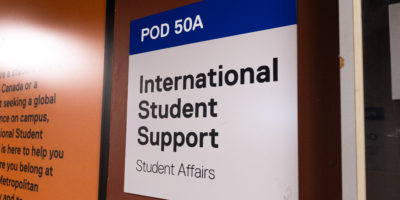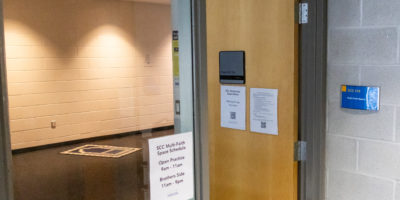By Nella Raposo
Two Ontario university students have torn up their $3,000 federal scholarships—and more may follow suit—after discovering an existing loan forgiveness program.
Even officials who distribute the Millennium Scholarships admit one-quarter of 35,416 students in Ontario offered scholarships would lose money because of taxes.
“It’s totally not worth my while,” said Carleton University student Colleen Handy, who rejected her Millennium Scholarship. “The problem is it’s included in the money that would have been forgiven, and on top of that I might have to pay taxes on it.”
Sarah Dean, a 22-year-old translation student at Laurentian University in Sudbury, also rejected her scholarship.
Ontario now forgives any amount of an annual loan that exceeds $7,000—tax-free. For students who had more than $3,000 forgiven, the Millennium Scholarship just means the money comes from another source: Ottawa.
But the real difference is the tax.
For example, under the provincial forgiveness program, a student with a $10,000 loan would have $3,000 wiped off.
Under the millennium scholarship, the student would get $3,000, but a large chunk of it would be taxed.
And it’s at a price of $300, says Joel Harden, chair of the Canadian Federation of Students-Ontario.
Harden estimates a student receiving a Millennium Scholarship will pay that much, depending on yearly income—which they wouldn’t pay if they rejected the award. CFS has urged students to ditch their scholarships.
Ottawa set up the Millennium Scholarship Foundation in 1998 to help students deal with rising debt loads and tuition hikes. Over the next decade the federal government will give $250-million in $3,000 chunks to the country’s neediest students each year.
Harden said the provincial government is profiting from the Millennium Scholarships by giving away the federal money instead of provincial loan forgiveness—effectively cutting $50-million in spending, Harden said.
Dave Ross, senior media relations coordinator at the Ministry of Training, Colleges and Universities, insists the money will be reinvested in postsecondary education. Ross said he doesn’t know exactly where the cash is going because he doesn’t know how many students will reject the scholarships. And he blames the federal government for taxing the money in the first place.
“It was the federal government’s decision to make the Millennium Scholarships taxable,” Ross said.
Jean Lapierre, communications director for the scholarship foundation, said his team is talking with the Ontario government to find ways to correcting the gaffe that will leave one in four scholarship recipients in more debt than they were before receiving the taxable award.
“Our position is that at least half of [Ontario’s] savings should go towards benefiting those who would not have benefited originally,” Lapierre said.
But he said students should not rush to refuse the scholarship.
Ryan Parks, executive director of the Ontario Undergraduate Student Alliance, agreed.
“It makes really good press to stand up and reject a millennium scholarship,” Parks said. “But we believe it is not the best interest Ontario students.”
RyeSAC v.p. education Cory Wright said he knows three Ryerson students who are thinking of rejecting their scholarships.
But he stressed the importance of students looking at their own financial situations before deciding to accept or reject the scholarship. The money will help in some cases, Wright said.












Leave a Reply